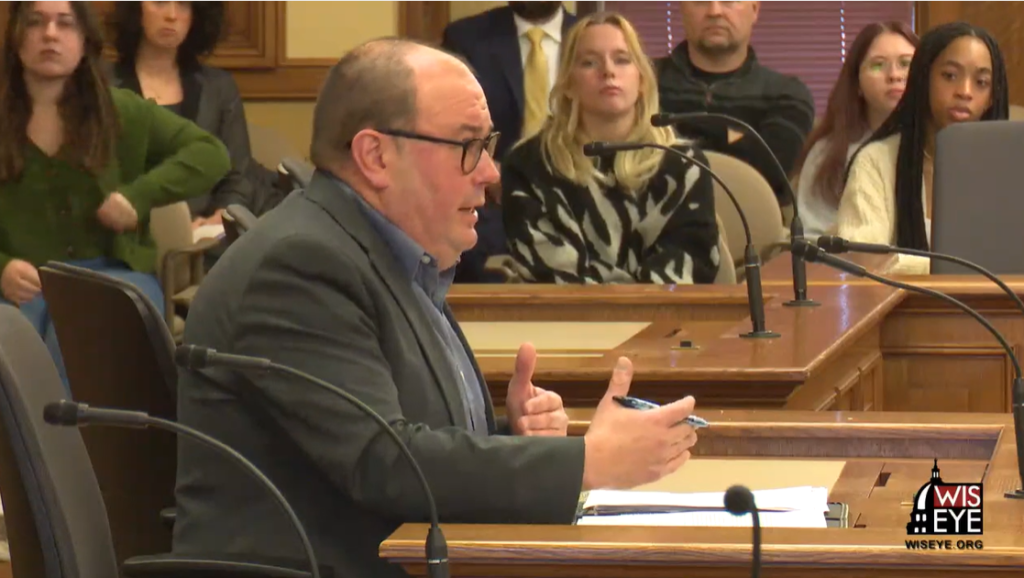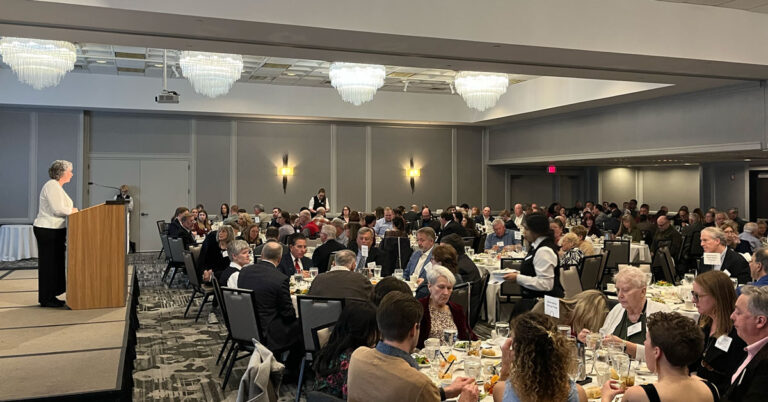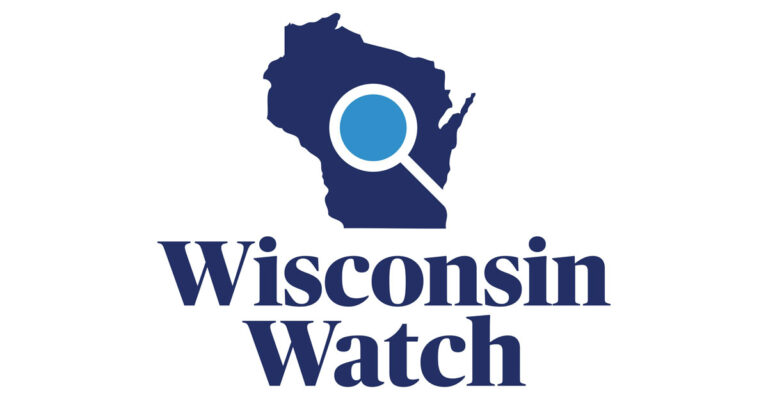A pair of bills meant to protect high school and college students’ First Amendment rights received a public hearing in the Senate on Tuesday. It’s the next step for the bills, which passed the Assembly in November.
AB 551/SB 571 would specify that student journalists at the state’s public middle and high schools and public higher education institutions have the right to exercise freedom of speech and press in school-sponsored media regardless of whether the publication is supported financially by the school, uses school facilities or is produced in conjunction with a class.

Co-author Rep. Tom Michalski (R-Elm Grove) focused on the state’s public universities for part of his testimony, referring to a controversial survey that found that a majority of students who responded said they were afraid to express views on certain issues in class. He said it found that conservative students are afraid to speak up for fear that their instructors would retaliate by lowering grades.
“I was a student at the University of Wisconsin System in the late 60s, early 70s. I can remember protesting the administration that was unduly controlling and oppressive with its conservative agenda. It seems the pendulum has swung and the University System is now unduly controlling and domineering with its liberal agenda,” Michalski said. “AB 551 guarantees freedom of speech in the university student publications.”
The bill, which passed the Assembly unanimously, would also establish that student journalists are responsible for determining the news, opinion, feature and advertising content of school-sponsored media and prohibit school officials from restricting what students could publish.
A school board, charter school operators and the Board of Regents of the UW System and each technical college district board would be required to adopt a policy that includes an appeals process related to student journalists exercising their freedom of speech and press.
The bill is modeled after national “New Voices” legislation, which has been approved in 17 states as of September.
Sen. Chris Larson (D-Milwaukee) questioned Michalski about whether the legislation would protect student publications from being shut down completely.
“What’s to prevent an institution of education from canceling the newspaper altogether?” Larson asked.
“I suppose nothing. I don’t know if that is, I don’t know if they’re required to have newspapers or not,” Michalski said.
“This is something to discuss,” Larson said. “But overall the legislation makes sense.”
Jeff Buhrandt of the UW-System, which has recently begun referring to itself as the Universities of Wisconsin, told the committee that student media at the public universities across the state are independent entities without administrative oversight in order to ensure freedom of press.
Buhrandt said the bill could “lessen editorial independence of student outlets for our universities by creating a board policy as outlined in the legislation. Putting independent outlets under additional administrative oversight could lessen freedom of press.”
He added that while the UW System shares Michalski’s commitment to freedom of the press on its campuses, “we believe that adherence to constitutional laws is best suited for upholding this commitment.” He said the bill would be better suited for the K-12 education level.
High school student journalists testified in favor of the bill with some saying it would protect rights that already exist.
The committee also heard testimony on AB 553/SB575, which passed the Assembly in a 62-36 vote with Rep. Todd Novak (R-Dodgeville) joining Democrats against the bill.
The bill would establish free speech and academic standards for public higher education institutions and require institutions to pay up to $100,000 for violations of those standards.
The attorney general, a district attorney or a person who alleges their rights were violated could bring court action against the UW System’s Board of Regents or the technical college district board. Institutions found to have violated any of the provisions in the bill would be required to pay out the damages, court costs and attorney fees with damages starting at $500 for the initial violation and going as high as $100,000.
An amendment adopted by the Assembly changed one of the additional penalties in the bill from potentially losing certain grants administered by the Higher Educational Aids Board to a two-year tuition freeze if there is more than one violation in a five-year period. A university or technical college would also be required to put a disclaimer about the violation on all admission-related notices for the next four years.
The penalties portion of the bill was one of the UW System’s biggest concerns about the bill when it was heard in the Assembly. Bill co-author Rep. Amanda Nedweski (R-Pleasant Prairie) was insistent on Tuesday that a penalty is a necessary portion of the bill.
“We took out the original penalty which was a revocation in Wisconsin grant funding,” Nedweski said during the hearing. “We worked with employees and faculty from the University of Wisconsin to say, ‘What would be a more appropriate penalty that doesn’t punish students?’ This is really kind of what we landed on. A two-year tuition freeze [as a way of] getting administrations to pay a little bit closer attention.”
This story is republished from the Wisconsin Examiner under a Creative Commons license. Read the original.



